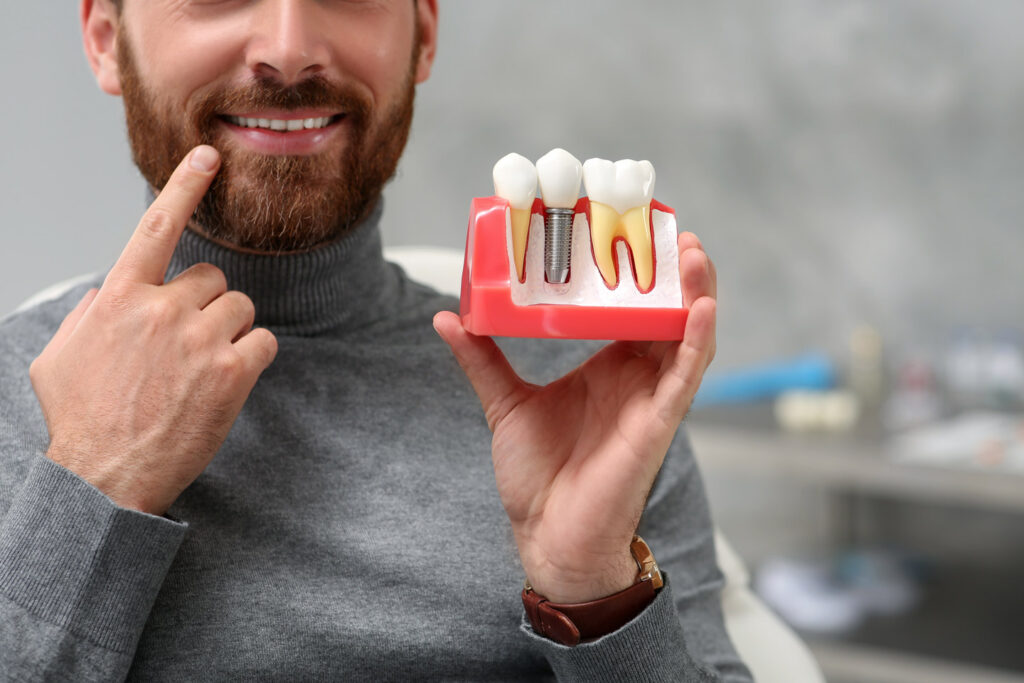
Can You Get Dental Implants After Having Dentures?
When it comes to dental health and aesthetics, individuals are often seeking the best possible solutions to restore their smiles and regain their confidence. One common scenario that arises is whether it’s possible to get dental implants after having dentures.
Understanding Dental Implants and Dentures
Dentures: A Traditional Solution
Dentures have been a traditional solution for individuals dealing with missing teeth for many years. These removable dental appliances come in two main types: full dentures and partial dentures.
Full dentures replace all teeth in the upper or lower arch, while partial dentures are used when some natural teeth are still present. While dentures provide a functional solution, they can have limitations in terms of stability and comfort.
Dental Implants: A Modern Advancement
On the other hand, dental implants represent a more advanced and permanent solution for replacing missing teeth. A dental implant consists of a titanium post that is surgically inserted into the jawbone, mimicking the natural tooth root. This post provides a stable foundation for a prosthetic tooth, known as a crown, to be attached. Dental implants offer numerous benefits, including improved stability, natural appearance, and the preservation of jawbone health.
Transitioning from Dentures to Dental Implants
Is It Possible?
Now, let’s address the question at hand: Can you get dental implants after having dentures?
The answer is generally yes, but several factors come into play.
Jawbone Health
One crucial consideration is the health of your jawbone. Dental implants require a sufficient amount of healthy bone to provide stability and support. If you’ve been wearing dentures for an extended period, you might have experienced some bone loss due to the absence of tooth roots.
However, this doesn’t necessarily disqualify you from getting dental implants. Modern advancements, such as bone grafting procedures, can help regenerate bone in the implant area.
Evaluation and Planning
Before making the transition, your dentist will conduct a thorough evaluation of your oral health. This includes assessing the condition of your jawbone and determining whether additional procedures are needed before implant placement. Comprehensive planning is essential to ensure the success of your dental implant procedure.
Benefits of Transitioning
Transitioning from dentures to dental implants can offer a range of benefits. Dental implants provide a more stable and comfortable fit compared to traditional dentures.
They also look and feel more natural, allowing you to speak and eat with confidence. Additionally, dental implants can stimulate the jawbone, preventing further bone loss and maintaining your facial structure.
The Implant Process: What to Expect
Implant Placement
The process of getting dental implants typically involves several steps. The first step is the surgical placement of the implant post into the jawbone. This procedure is performed under local anesthesia, ensuring your comfort throughout.
Osseointegration
After the implant is placed, a process called osseointegration occurs. This involves the fusion of the implant post with the surrounding jawbone over a period of a few months. This fusion provides the strong foundation needed to support the prosthetic tooth.
Prosthetic Attachment
Once osseointegration is complete, an abutment is attached to the implant post. The abutment serves as a connector between the implant and the prosthetic tooth. Finally, a custom-made crown is placed onto the abutment, completing the dental implant restoration.
FAQs:
How long do you have to get implants after dentures?
The timeframe for receiving implants after dentures can vary, with some individuals opting for implants immediately after denture placement, while others choose to transition at a later time after adjusting to dentures.
Do you get dentures before implants?
Dentures can be obtained before or after implants based on individual preferences and dental circumstances. Some people may start with dentures and then consider implants for a more permanent solution, while others might choose implants initially for enhanced stability.
How painful are implants for dentures?
The discomfort associated with implants for dentures is usually mild and manageable. Local anesthesia is used during the procedure to minimize pain, and any postoperative discomfort can be alleviated with prescribed medication and proper aftercare.
Can dental implants hold dentures?
Yes, dental implants can effectively anchor dentures in place. Implant-supported dentures offer a secure fit that minimizes slippage or movement, allowing individuals to confidently enjoy their daily activities without worrying about denture stability.
Do implants feel better than dentures?
Dental implants often provide a more natural and comfortable experience compared to traditional dentures. Implants feel like natural teeth, allowing for improved chewing efficiency, speech, and a heightened sense of self-confidence.
Can dentures be fixed permanently?
Yes, dentures can be fixed permanently with implant-supported options. Implant-retained dentures provide a stable and reliable solution, eliminating concerns about denture movement, discomfort, and the need for adhesives. This approach offers long-term benefits and a restored quality of life.
Conclusion
In conclusion, the transition from dentures to dental implants is indeed possible and can offer significant improvements in terms of stability, comfort, and aesthetics. The decision to undergo this transition should be made after careful consideration and consultation with a qualified dental professional. Factors such as jawbone health, evaluation, planning, and the implant process itself should all be taken into account.

